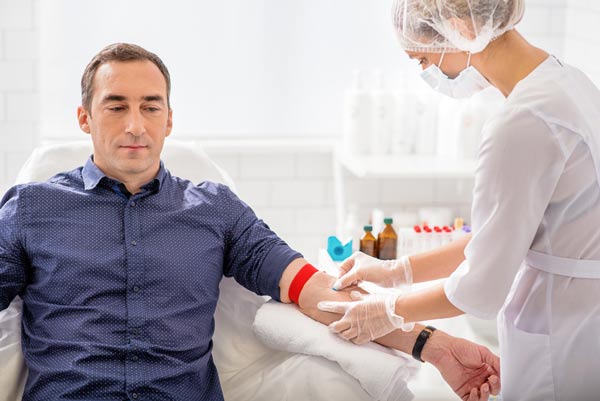Darius Rucker sings a song entitled “For the First Time” in which he asks the following question: “When was the last time you did something for the first time?”
In February 1967 I was sleeping with twenty other soldiers on the second floor of a World War II era army barracks at Fort Sill, Oklahoma. It was just 9:30 PM, or as we would have said it, two one three zero hours. A firm hand shook me awake, and I found myself looking into the concerned face of a staff sergeant whom I didn’t know. The name printed above his left pocket was Monk.
“Candidate McMahan,” he said. “Are you B negative?”
“Yes,” I said, swallowing the ‘sir’ and recovering from the shock of being awakened by a total stranger.
The staff sergeants I had met were highly accomplished soldiers, but they didn’t like young officer candidates like me calling them sir.
“Can you come with me? It’s an emergency.”
I could hear the urgency in his demeanor and voice, so I pulled on my fatigue slacks and slipped my bare feet into my unlaced combat boots.
We scrambled down the steps to his waiting jeep and in minutes we were walking briskly into Reynolds Army Hospital.
A female nurse who was a First Lieutenant met us. “Are you McMahan?” she said.
“Yes, ma’am,” I said.
She examined my dog tags, confirming my blood type, and then she rushed me down a wide corridor. “Have you given blood before?” she said.
“No, ma’am, this is the first time.”
The nurses quickly stepped me through the process, and in minutes I was lying on a portable cot with my blood dripping into a clear bottle. As soon as it was full, a nurse removed it while another attended to me. The nurse with the precious blood practically ran down a nearby hallway.
I finally summoned the courage to ask what had happened.
The nurse who was assisting me said a young boy named Jerome had been hit by a car on post while riding his bicycle. Apparently, there was internal bleeding and he needed an emergency infusion. An auto accident earlier in the day and some other patients had used all the compatible blood supplies.
Soon two other soldiers like me walked in and were immediately in the process of giving more blood in case Jerome needed it.
As I was leaving, a corpsman handed me a large glass of water and some saltine crackers. “Drink at least two glasses of water and eat a few of these crackers,” he said, pointing me toward the hospital waiting room.
I opened the door to the large room, still wearing my fatigue pants, a tee-shirt, and unlaced boots with no socks. I would have had bed hair, but hair was strictly forbidden in my OCS prep class.
An attractive young woman with a young child, perhaps three or four years old, was sitting in the room. She looked up at me and stood.
“Did you just give blood to my son?” she said.
“Jerome?” I said.
She nodded and walked toward me as though she was going to push me away, but she wrapped her arms around me and said, “Thank you for giving your blood to save my child.” She began to sob, and tears were soon rolling down my face, like they are now as I relive the memory.
A few days later Sergeant Monk returned to our training facility. He looked me up and told me that Jerome, whose father was in Vietnam, survived and was doing well. The family asked that he tell me how grateful they were for what I had done.
That was the first time. But there have been many times since, and I now proudly carry a VIP blood donor card in my wallet. I give as often as I can, which is four to six times each year.
Blood Donor Statistics from The American Red Cross
- Approximately 38% of the US population is eligible to give blood, but fewer than ten percent make up the donor base.
- 5-million lives are saved every year by those who donate blood.
- In the US, 36,000 units of blood are needed daily.
- People with blood type O-negative are universal donors. Their blood type can be transfused with all in need of transfusion.
- B-negative is a relatively rare blood type, about the same as O-negative, around 5% of the population, each.
- A single automobile accident can consume up to 100 units of blood.
- If just one percent more of eligible donors commit to donating blood regularly, the shortage in blood supplies would be permanently eliminated.
Source: Blood Needs & Blood Supply by the American Red Cross
Have You Ever Given Blood?
If not, Darius Rucker and I want to ask you, “When was the last time you did something for the first time?”
It usually takes a little more than hour. Everyone is as nice as can be, as my mother would have said. They treat you like you’re important. It’s relatively painless. It makes you feel good about yourself. And you may save someone’s life. In fact, you probably will.
By my calculation, if he has survived life’s other tumults, Jerome is now sixty years old.


